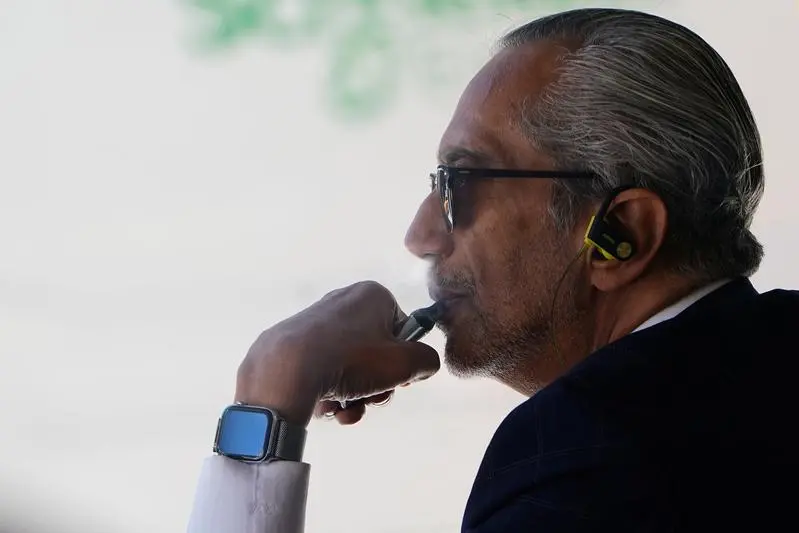PHOTO
NEW YORK - Juul Labs has discovered the fountain of premature aging. The e-cigarettes it sells were intended as a safer alternative to smoking, but now lawmakers are treating them like a menace. Growth markets, such as China and India, are receding from view and Juul’s $38 billion valuation from last year has probably gone up in smoke. However, all of this doesn’t mean that vaping is dead, or that e-cigarettes won’t be profitable.
Converting smokers to vaping is still a public health win. Tobacco kills nearly half a million Americans a year, and e-cigarettes have far fewer of the toxic compounds that burning tobacco produces. The problem is young customers taking up the habit. The percentage of high schoolers using e-cigarettes rocketed from 11.7% in 2017 to over 20% in 2018, says the surgeon general. Six deaths and several hundred mysterious cases of lung illnesses linked to vaping also change the health – and financial – calculus.
Juul’s valuation is now leaking black smoke. San Francisco and India are among the places that have blocked the sale of e-cigarettes, and the company’s products disappeared from Chinese e-commerce websites days after being launched last week. That can’t please Marlboro-maker Altria, which paid $12.8 billion for a 35% stake in Juul last year. That valuation of about 60 times EBITDA, estimated by Bernstein, is six times Altria’s own according to Refinitiv data. Altria investors have lost 14% of their money since it struck its deal with Juul in December. British American Tobacco is up by that much, and then some.
Yet all is not lost for Juul and its part-owner. True, regulation is likely to focus on taxation, since a 10% increase in cigarette prices cuts consumption by 3% to 5% according to a review of studies by the International Agency for Research on Cancer, with the biggest reductions among young users. That would help return vaping to its origins as a product for smokers looking to kick the habit, with slower growth, but also higher barriers to entry. An awareness of the risks in e-cigarettes should also draw smokers towards recognized brands. Juul may still be the best in its market; it just won’t be the market Altria originally hoped for.
CONTEXT NEWS
- India banned the sale, production, import and advertising of e-cigarettes on Sept. 18, and Juul Labs said on Sept. 17 that its products were not available on websites in China, just days after entering that market.
- Separately, Democratic members of the U.S. House Oversight Subcommittee on Economic and Consumer Policy threatened on Sept. 18 to subpoena Juul for not providing documents relating to the marketing of its electronic smoking devices. Lawmakers are examining whether the firm targeted children.
- Altria, the maker of Marlboro cigarettes, took a 35% stake in Juul in December 2018, valuing the company at $38 billion.
- As of Sept. 12, there have been 380 cases of lung disease, and six deaths, among e-cigarette users reported to the U.S. Centers for Disease Control and Prevention. Most patients reported using products containing THC, the main psychoactive compound in marijuana, but some said they only used nicotine-based goods.
(Editing by John Foley and Leigh Anderson)
© Reuters News 2019





















